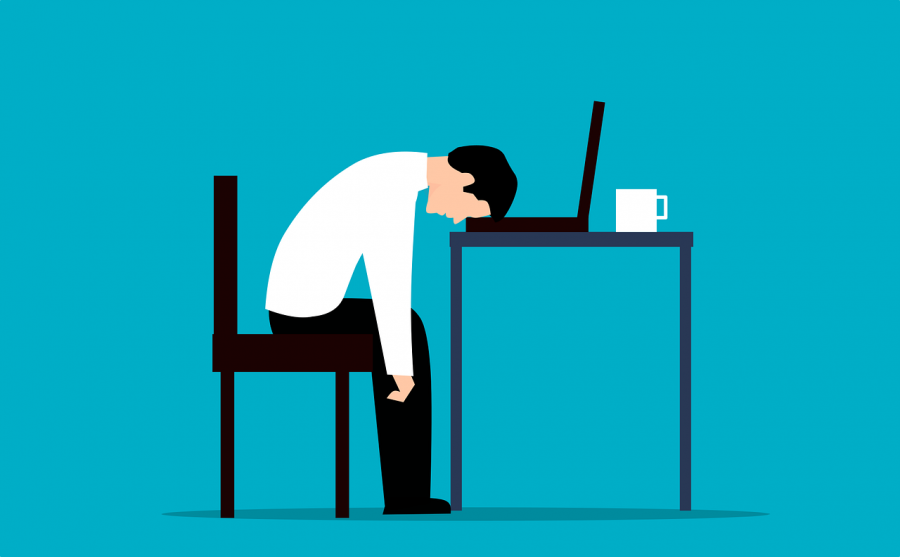As the end of the Fall 2021 semester at the University of North Georgia looms ever-closer, many students are suffering with unhealthy levels of stress. Upcoming final exams, tight deadlines and holiday pressures, among other things, are leaving countless students with symptoms of academic burnout.
School Counselor Andrea Sun says that it’s easy to get caught up in the dreaded cycle of stress this time of year. However, with the proper techniques, it can be highly manageable. Read below for her tips on avoiding academic burnout and finishing the semester strong.
of year. However, with the proper techniques, it can be highly manageable. Read below for her tips on avoiding academic burnout and finishing the semester strong.
1) Eat Healthy
A nutritious diet with plenty of fruits, vegetables and whole grains helps to lower blood pressure and fight off anxiety. Healthy eating is one of the “best things that people of any age can do to manage stress,” said Sun.
The counselor also emphasized avoiding caffeine, sugar, alcohol and “anything you can abuse” as coping mechanisms.
2) Sleep
When students are busy, they’re often cutting back on sleep, and this can be a recipe for disaster. Making sure you’re getting “between seven and eight hours of sleep most nights is a big thing,” she said, as it decreases cortisol levels and improves mood.
3) Exercise
In addition to sleeping less, busy students are prone to skipping regular exercise. Exercising helps to reduce stress by releasing natural painkillers as well as lowering stress hormones. However, Sun noted that students should exercise in ways that bring them joy whether that’s playing a sport or taking a walk with a friend.
4) Keep a Balanced Schedule

The 52-year-old also described the importance of ensuring that students aren’t “working, studying and doing everything for everybody else so much that they’re not taking care of themselves.” As part of self-care, students should do something that makes them happy at least twice a week. “It can be going out to dinner with friends or playing an instrument,” she said. “Basically, it’s anything in a person’s life that makes them happy and forget about everything else.”
5) Think Positively
Changing the way you think is another powerful technique to combat stress and anxiety. Instead of focusing on what they’re not doing, students should focus on being mindful of their strengths and what they are doing.
“So many people always focus on their weaknesses. I’ve read in many places that the most accomplished people in the world achieve success because of their mindset.” – Andrea Sun
6) Practice Grounding Techniques
For in-the-moment stress, such as when taking a test, the school counselor recommends various grounding techniques. One of these is deep belly breathing. “You’re breathing in, holding it for five seconds and then letting it completely out and doing that several times.” Another method she recommends uses the five senses. The technique includes naming five things you can see, four you can feel, three you can hear, two you can smell and one you can taste. “It’s a technique you can use anywhere,” she said, “and it’s helpful because you’re focusing on something other than what you’re worried about at the given time.”
7) Seek Professional Help
If anxiety symptoms (nervousness, fatigue, nausea, headaches, etc.) are occurring at least twice a week over a period of three weeks, it may be time to schedule an appointment with a professional. “If you’re doing what we’ve talked about and nothing is helping, it’s probably time to schedule an appointment with a therapist,” said Sun.
Find out about counseling services at UNG here.




























